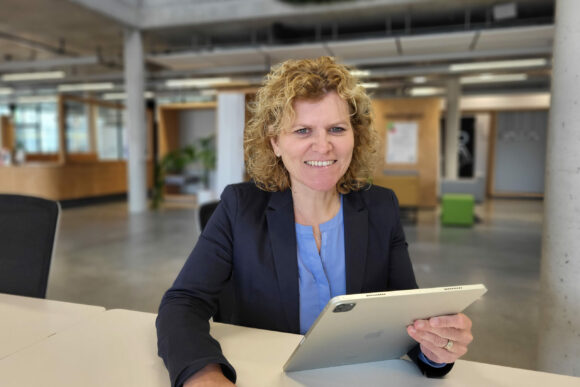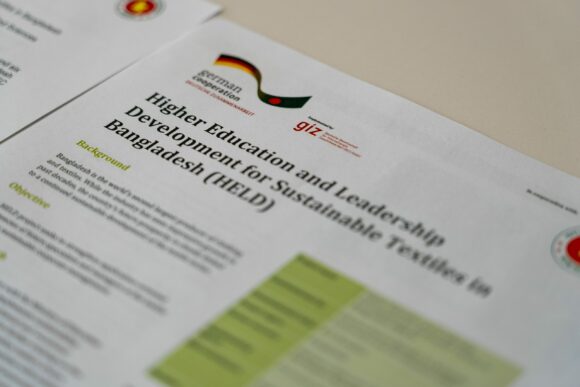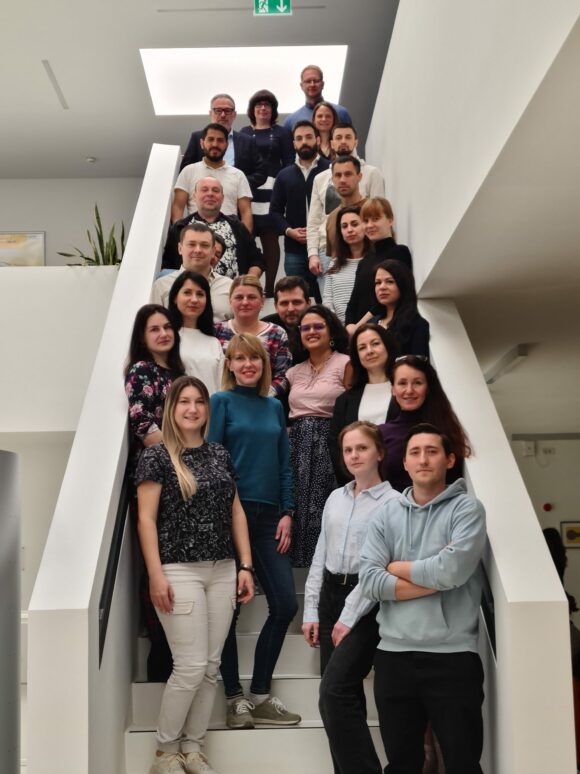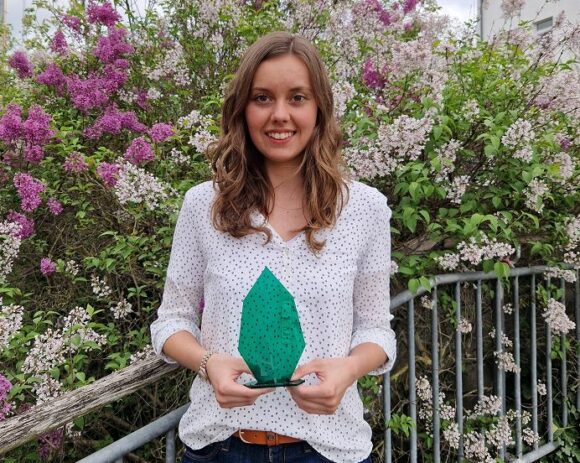At the closing event of the first project phase of the “Shuttle Model Region Upper Franconia (SMO)” in the Münch-Ferber-Villa in Hof, the participating project partners presented their results. The guest was the German Aerospace Center (DLR) in its function as project sponsor of the project, which supervises the work in the SMO project in coordination with the funding body, the Federal Ministry of Digital Affairs and Transport (BMDV).
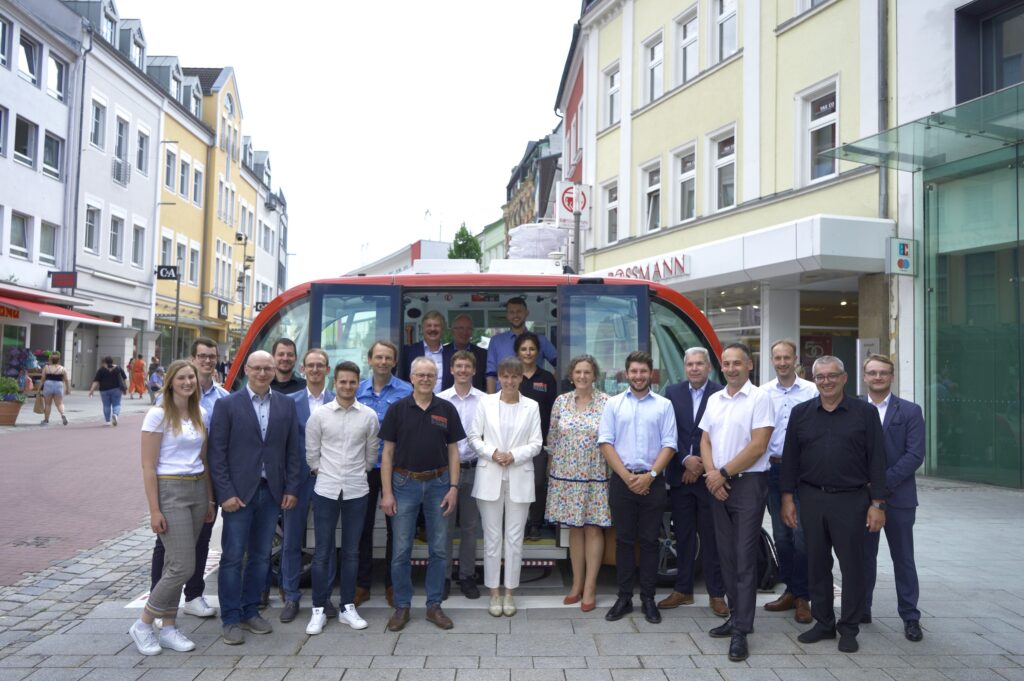
The experience of the model communities in implementing bus operations with automated shuttles is essential for both the project participants and the funding agency. Legislators have also recognized that this process is complicated and time-consuming: The new law on autonomous driving should make it easier for other manufacturers, cities and municipalities to use vehicles with autonomous driving functions on public roads in the future.
In retrospect, the shuttle deployment in Hof, Kronach and Rehau was a complete success, even if the project partners had to learn about the limits of automated driving during the pilot phase – for example, when crossing a complex railroad crossing in Rehau. Despite several Covid-related breaks in service, more than 10,000 people have ridden in the shuttles since operations began in June 2021. The passenger survey conducted by Coburg University of Applied Sciences also revealed a high level of acceptance. For example, over 85% of passengers would recommend a ride on the SMO shuttles to others.
In the afternoon, the Mayor of Hof, Döhla, thanked all partners for the excellent cooperation
The many publications in specialist media and the visits from other municipalities and transport companies underline the relevance of the pioneering work that is being done here and made tangible for all interested parties.”
Eva Döhla, Mayor of the City of Hof
Afterwards, the guests had the opportunity to visit the shuttle control center in Hof’s Ludwigstraße. From there, the self-driving shuttles can be monitored at all deployment locations in the model region – i.e. in Hof, Kronach and Rehau. Valeo also demonstrated teleoperation: a vehicle was remotely controlled from Hof at the Valeo plant in Kronach. This pioneering work is unique in Germany.
This is also perceived by the BMDV as a funding agency in Berlin. Daniela Kluckert, Parliamentary State Secretary at the Federal Ministry of Digital Affairs and Transport, said
Through our new legal framework, autonomous vehicles will be able to participate in normal road traffic in defined areas in the future – this is unique in the world. Autonomous vehicles and shuttles offer enormous potential, for example in improving public transport services. The SMO project has shown that citizens are using these services. It is good that SMO is now continuing with the follow-up project funded by the BMDV and will provide further important insights.”
Daniela Kluckert, Federal Ministry of Digital Affairs and Transport
Research and development work continues until 2024
Work will now continue as part of the second project phase, which started back in early January. The shuttles will remain in operation until mid-2024. The new location is Bad Steben, where two vehicles will operate in the future in addition to Hof and Kronach. The previous location in Rehau will no longer be served
With the ‘Shuttle Model Region Upper Franconia’ project, we have made significant research contributions in the city of Rehau in collaboration with REHAU over the past few years and gained important insights into this still new form of mobility. Now, as part of the continuation of the project in Bad Steben, we want to use self-driving shuttles to transport (rehab) guests, staff and materials on public roads in cooperation with the local healthcare facilities on an as-needed basis. In Bad Steben, several future topics on rural mobility can thus be addressed at the same time.”
District Administrator Dr. Oliver Bär
In the further development of the shuttle technology, operation without an attendant, among other things, will be intensively investigated until mid-2024. In this context, work will continue on improving the software and sensor technology. At present, escorts are still required and prescribed for operation, and they are also responsible for communicating with passengers.
SMO-II” can build on the solutions developed so far. For example, Hof University of Applied Sciences has retrofitted digital displays in the vehicles that provide live information and enable interaction options in the shuttle. In addition, digital displays in Kronach provide passengers with live information directly at the stops. In conjunction with the digital mobility platform “Wohin-Du-Willst” – which can already be downloaded from the well-known app stores – the shuttle rides are to be bookable on demand (“on-demand”).
The population is to be even more involved in the project within the framework of the so-called citizens’ advisory council, which is supervised by Coburg University of Applied Sciences. In the next project phase, the vehicles will also be used on-demand in some cases to increase the flexibility of this form of mobility and improve accessibility.
In the second project phase, all partners remain on board except for the city of Rehau. The new partner is the company Brose
The project consortium is now composed as follows:
Three municipalities: city of Hof, district of Hof, district of KronachFour
companies: Valeo Schalter und Sensoren GmbH, REHAU Automotive SE & Co. KG, Regionalbus Ostbayern GmbH (DB Regio Bus), Brose Fahrzeugteile SE & Co. KGThree
universities
:
Hof University of Applied Sciences, Coburg University of Applied Sciences, TU Chemnitz




